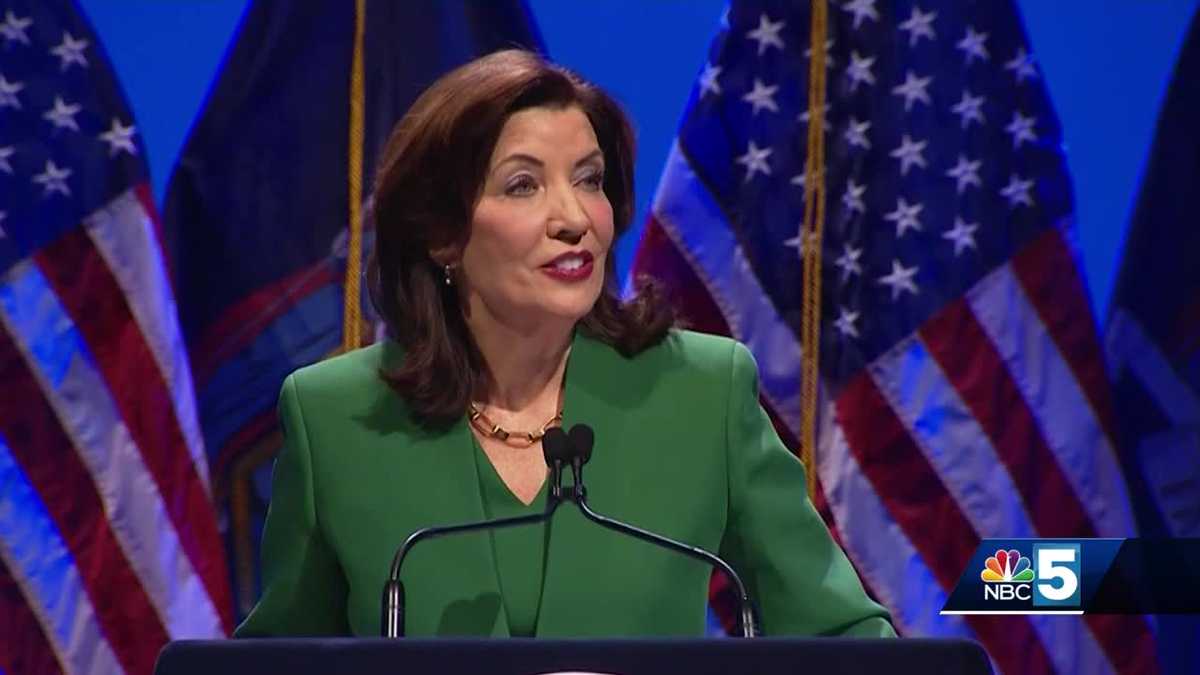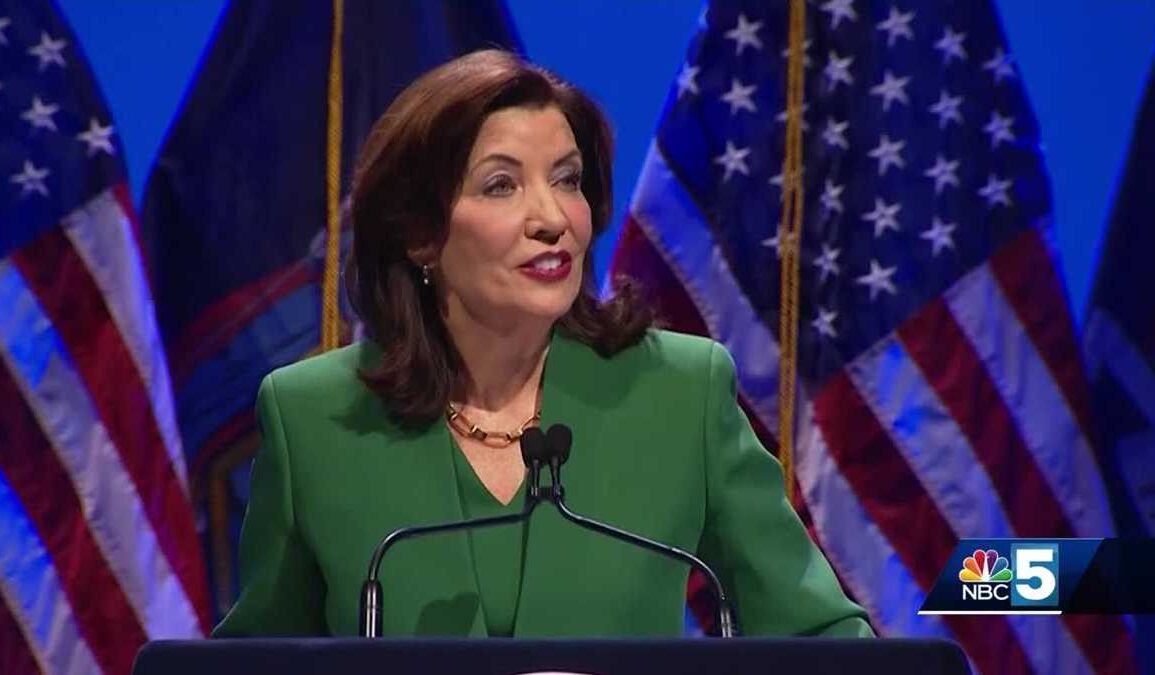
New York Gov. Kathy Hochul has responded to the end of the wildcat corrections officer strike by banning protesters from being hired for state positions.Hochul signed an executive order Monday that bars the hiring of individuals who continue to participate in strike actions from being hired for state jobs. She said she would also recommend that those striking officers be removed from the Central Registry of Police and Peace Officers, which would prevent them from being hired as police or peace officers in state and local jurisdictions.“There are consequences when people break the law, and that means you’re not working in our state workforce, ever,” Hochul told reporters Tuesday.There was no immediate comment from the union.The strike roiled a state prison system that advocates said was already beset by problems, including overworked staff and the failure to consistently provide incarcerated people with services and medical care. Jennifer Scaife, executive director of the Correctional Association of New York, an independent monitoring group, said she believed the system was “teetering on the edge” even before the strike. “I think that many of the preexisting concerns are still there, and there’s a lot of work that needs to be done to address those,” she said. Daniel Martuscello III, commissioner of the New York Department of Corrections and Community Services, announced that the strike was officially over Monday, despite DOCCS not meeting the threshold of 85% of striking workers returning to the job by that morning. He also announced that more than 2,000 striking workers were terminated that morning after they failed to adhere to the return-to-work deadline.The unsanctioned strike came to an end after 22 days and four negotiations aimed at getting striking and protesting corrections officers statewide to return to their posts within the state’s corrections facilities.There have been seven deaths of incarcerated people during the strike.That includes the death of Messiah Nantwi at Mid-State Correctional Facility in Marcy on March 1, which is being investigated by a special prosecutor. A court filing by the attorney general’s office said there is “probable cause to believe” that as many as nine correctional officers either caused or could be implicated in his death.Six guards were charged with murder last month in the December death of Robert Brooks, who was incarcerated at the Marcy Correctional Facility, across the street from the Mid-State prison.The strike came as Hochul seeks authority in the upcoming state budget to close up to five prisons to make the system more cost-effective and efficient.NBC5 is going to Malone on Tuesday to learn more about how those terminations impacted corrections officers in the North Country.Editor’s note: The Associated Press and Associated Press writer Anthony Izaguirre contributed to this report.
New York Gov. Kathy Hochul has responded to the end of the wildcat corrections officer strike by banning protesters from being hired for state positions.
Hochul signed an executive order Monday that bars the hiring of individuals who continue to participate in strike actions from being hired for state jobs.
Advertisement
She said she would also recommend that those striking officers be removed from the Central Registry of Police and Peace Officers, which would prevent them from being hired as police or peace officers in state and local jurisdictions.
“There are consequences when people break the law, and that means you’re not working in our state workforce, ever,” Hochul told reporters Tuesday.
There was no immediate comment from the union.
The strike roiled a state prison system that advocates said was already beset by problems, including overworked staff and the failure to consistently provide incarcerated people with services and medical care. Jennifer Scaife, executive director of the Correctional Association of New York, an independent monitoring group, said she believed the system was “teetering on the edge” even before the strike.
“I think that many of the preexisting concerns are still there, and there’s a lot of work that needs to be done to address those,” she said.
Daniel Martuscello III, commissioner of the New York Department of Corrections and Community Services, announced that the strike was officially over Monday, despite DOCCS not meeting the threshold of 85% of striking workers returning to the job by that morning. He also announced that more than 2,000 striking workers were terminated that morning after they failed to adhere to the return-to-work deadline.
The unsanctioned strike came to an end after 22 days and four negotiations aimed at getting striking and protesting corrections officers statewide to return to their posts within the state’s corrections facilities.
There have been seven deaths of incarcerated people during the strike.
That includes the death of Messiah Nantwi at Mid-State Correctional Facility in Marcy on March 1, which is being investigated by a special prosecutor. A court filing by the attorney general’s office said there is “probable cause to believe” that as many as nine correctional officers either caused or could be implicated in his death.
Six guards were charged with murder last month in the December death of Robert Brooks, who was incarcerated at the Marcy Correctional Facility, across the street from the Mid-State prison.
The strike came as Hochul seeks authority in the upcoming state budget to close up to five prisons to make the system more cost-effective and efficient.
NBC5 is going to Malone on Tuesday to learn more about how those terminations impacted corrections officers in the North Country.
Editor’s note: The Associated Press and Associated Press writer Anthony Izaguirre contributed to this report.
This post was originally published on this site be sure to check out more of their content.









